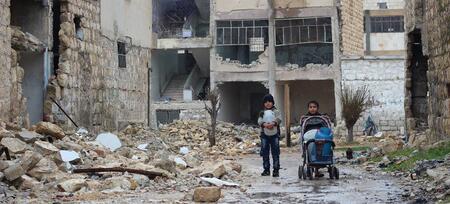
As Syria’s first major outbreak of cholera in over a decade spreads, thousands of children in neighbouring countries are also at risk from the deadly disease, with Lebanon’s recorded cases nearly doubling since last week.
A global shortage of cholera vaccinesmay exacerbate the outbreak, with the World Health Organization recently announcingthat the standard two-dose vaccination will be suspended temporarily to allow for the available doses to be used in more countries.
Lebanon’s first cholera case since 1993 was recorded on 6 October in the rural northern governorate of Akkar. According to the Ministry of Public Health, there are now 803 suspected and confirmed cases, with at least 11 deaths reported. Children are most at risk from the deadly disease, with those under 14 making up more than 50% of cases.
With the country steeped in an unprecedented socio-economic crisis – plunging three-quarters of its population into poverty, with frequent power cuts and a worsening cash crisis deteriorating living conditions for millions of people – communities are being forced to rely on poor water sources to survive, as bottled water costs soar three to five timeshigher than last year. Years of underinvestment in water and sanitation infrastructure have also left systems and services ill-equipped to cope.
Lebanon shares a long border with Syria, where the number of suspected and confirmed cholera cases continue to increase. As of 15 October, 20,014 suspected cases have been reported and 75 deaths confirmed, according to the World Health Organization. Cases have been confirmed now in all 14 governorates in Syria.
Source: Save the Children







